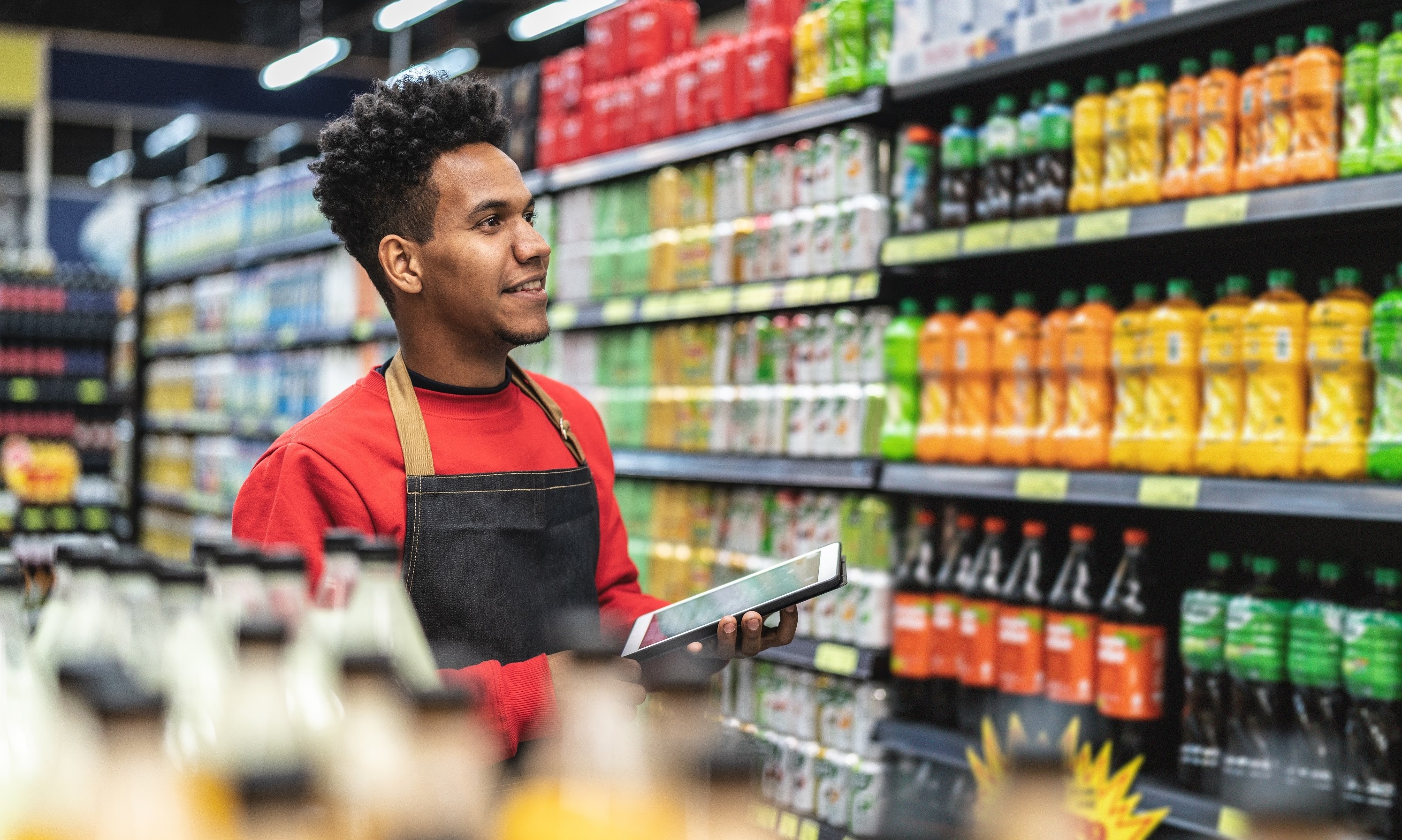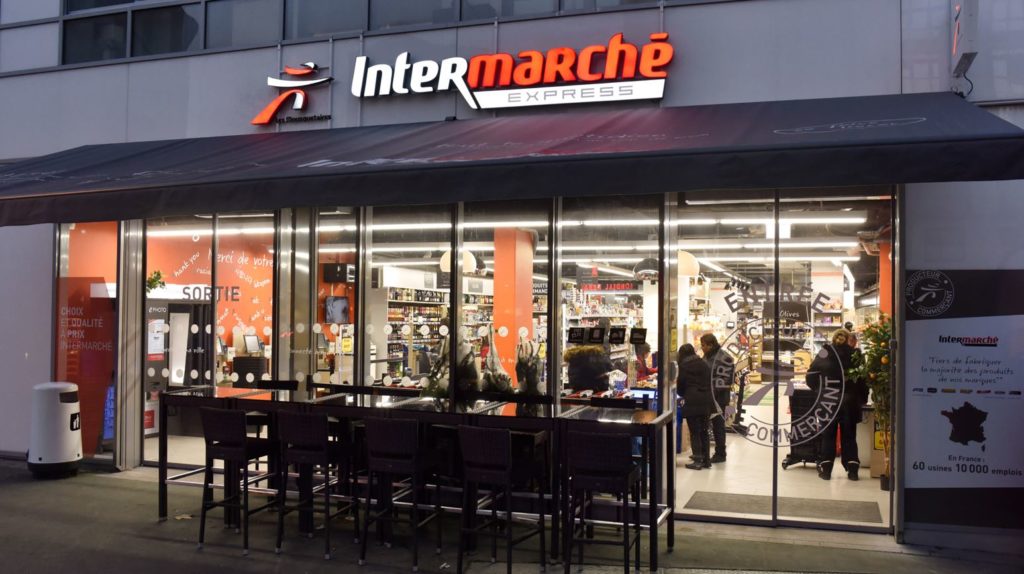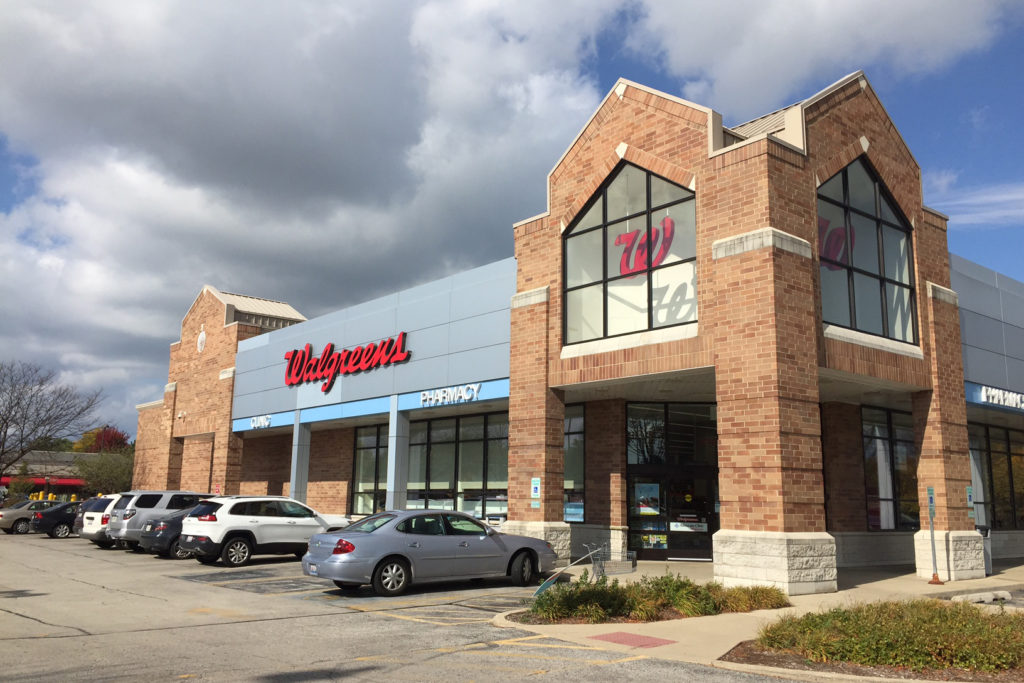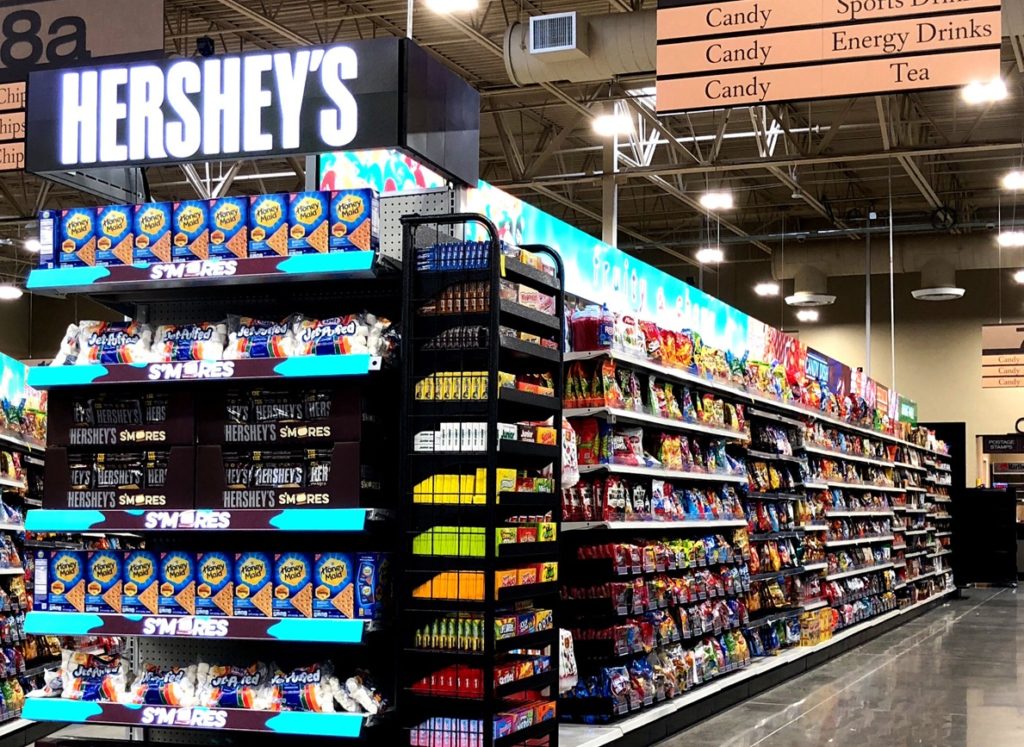
Retail 2020: Your next grocery run or closet refresh may be powered by Microsoft and our customers embracing tech intensity
As we embark on a new year (a new decade, in fact!) and look ahead to next week and another National Retail Federation conference and expo, I am inspired to pause and reflect for a bit on the successes of the past year. And the highlights that first come to mind are not from Microsoft but rather from our customers and partners – those retailers and companies supporting the retail industry with technology that have truly embraced our industry’s new normal – constant disruption – with fresh thinking and innovation.
We often hear that every company is becoming a software company, and this feels especially true for the retail industry right now, as many across fashion, fast-moving-consumer goods, food service and more are building their own net new digital capabilities.

Shelley Bransten.
We refer to this concept as tech intensity – not only using technology for technology’s sake, but also using it to build net-new capabilities to propel your business forward. And it’s why we believe that the next big innovations aren’t going to come from technology companies but rather be driven by retailers as they work to find new paths to revenue, keep up with customer demands and ultimately reimagine their businesses.
According to a study we recently conducted on the global impacts of this concept of tech intensity, more than half of retailers are already doing this – building first-party IP with advanced digital technologies – and the vast majority believe that doing so is the most effective way to build a competitive advantage, particularly in the areas of customer experience and delivery of goods and services.
Taking a new technology-enabled approach to business is the formula for retail success today, and between Microsoft and our global network of partners, we’re helping our retail customers do just that to address some of their greatest opportunities. All our technology and partnership investments are deeply rooted in the four critical priority scenarios our customers have told us they want most from Microsoft:
- Know your customer
- Empower employees
- Deliver on an intelligent supply chain
- Reimagine retail
We call these our priority scenarios, and here are just a few examples of customers and partners bringing them to life.
Know your customer: Deliver unforgettable experiences that make you stand out from the crowd
Retail begins and ends with the customer, and it’s so important that retailers use technology in ways that create new, engaging experiences that keep them coming back time and time again.
H&M
Our work with global fashion retailer H&M Group extends across different pieces of its business, including fueling new customer experiences. But one area of collaboration with the company that is currently top of mind for me is sustainability. H&M Group has a strong focus on sustainability, with a vision to lead the change toward a circular and renewable fashion industry, and because of this H&M launched a garment recycling program in its stores in 2013 with the goal of preventing customers’ unwanted clothing from ending up in a landfill.
Recently, and with the help of Microsoft Azure and partner Ombori, H&M reimagined its garment recycling program in the U.S. with new “smart” recycle bins that offer engaging experiences to customers. The new bins are outfitted with an Ombori digital screen that serves up discount codes and engagement opportunities (pictures, social prompts, etc.) to customers who donate, and digital scales within the bins allow each store to quantify the impact its customers are having in real time.
And collecting garments in stores is only one of many H&M Group sustainability initiatives; join me Jan. 13 at NRF 2020 to hear from Arti Zeighami, head of advanced analytics and AI at H&M Group, about how the company is working for a global fashion industry where sustainability and AI go hand in hand.

Intermarché is partnering with Microsoft, Accenture, SGS and Transparency-One to provide a more personalized customer experience.
Intermarché
France’s third-largest grocer, Intermarché, prides itself on living its motto: “Mieux produire, mieux consommer, mieux manger,” which translates to “to produce, consume and eat better.” Through a partnership with Microsoft and partners Accenture, SGS and Transparency-One, the grocer is leveraging data from “farm to fork” to help improve every Intermarché customer’s understanding and ability to measure and control the impact of his or her own consumption.
By implementing Azure Machine Learning and eventually other Azure AI services, Intermarché will be able to personalize offers to shoppers based on their dietary preferences (for example, low-cholesterol diets, gluten-free diets and more) as well as provide more transparency into the supply chain of its organic products, making healthier, sustainable living affordable and accessible.
dunnhumby
UK-based partner dunnhumby, a leader in customer data science, works with leading retailers and consumer-goods companies to use data science to help them deliver better shopping experiences for their customers. And we’re thrilled that, through a global strategic partnership, dunnhumby will move its customer insights products – used by the likes of Tesco, Unilever, McDonald’s, Nestle and many more – to the Microsoft Azure cloud platform.
Combining dunnhumby’s tools, such as Shop on Lab, with the Azure cloud platform will allow many more retailers and consumer-goods companies to unlock and share insights into their businesses. The processing power of Azure and the machine learning data science of dunnhumby can offer the right insights at the right time, so action can be taken quickly on company performance, new trends and innovation, brand switching and loyalty.
Empower your employees: Enable your people with the tools to deliver extraordinary customer service
Retail associates are often the first point of contact for customers, so it’s important that they’re armed with the right information and training to provide the best experience possible.

A partnership between Walgreens Boots Alliance and Microsoft is helping WBA to cut costs, improve operations, modernize business processes and train employees.
Walgreens Boots Alliance
Almost a year ago, we announced a partnership with Walgreens Boots Alliance (WBA) to transform health care delivery. Today we’re sharing updates on how we are making progress with this partnership. Cloud modernization is well underway, helping WBA to recognize cost efficiencies in the cloud in several ways.
WBA is migrating on-premises data warehouses into Azure Synapse Analytics, improving operations and modernizing business processes. The company is also using Azure Synapse to analyze vast amounts of data in real time while applying machine learning to get insights that help associates provide customers with the products they want while preventing unsold inventory from cluttering the back office.
We’re also working together on two new pilot projects to enable more empowered employees and better customer insights in Walgreens stores. WBA is currently testing a new way for store associates to receive training on new scenarios presented in stores where it carries fresh food products – such as culling produce, executing curbside grocery pickup and more – via an immersive mixed-reality experience using Microsoft HoloLens 2 and a training solution from partner, Altoura.
The mixed reality training replaces document-based training, lowers costs traditionally associated with getting employees up to speed on new processes and ensures employees have access to the latest and greatest training in real-time to better serve customers.
Additionally, to better understand Walgreens’ customers and their needs, the company is conducting anonymous footfall tracking via carts and baskets with Microsoft partner Acuity’s Atrius system. The Atrius system helps Walgreens better understand the consumer journey using Bluetooth low-energy beacons to learn how customers are navigating its new format stores and using that information to better optimize the shopping experience for consumers.
Deliver on an intelligent supply chain: Close the gap between demand and fulfillment to delight your customers
So much of customer satisfaction rests in ensuring that you have the right products in the right place at the right time, and infusing data-driven intelligence into your supply chain can help make all the difference.
Mars, Inc.
For most consumer-packaged goods companies, sales spike during holiday season due to investments across the marketing and sales mix, from online display advertising to in-store physical displays. This past fall, Mars Inc., a global manufacturer of confectionary and other food products, decided it was time to gain deeper insights into an age-old problem of tracking where its product displays went after they left the warehouse.
Previously, Mars was only able to track the number of displays it produced and how many left its warehouses for retailer destinations. To help tackle this problem, it found the right partner with Footmarks, which designed its beacon- and gateway-based display tracking solution with Azure IoT Central to deliver secure, simple and scalable insights into what happens once displays begin transit.
With the Footmarks solution, Mars is now equipped with information on how many displays were in warehouse, how many were in transit, where they were headed, when they were put in market and how long they remained in use. With this insight, sales teams were able to access live updates to ensure displays were at the right stores, ensuring customers were always able to find their favorite snack foods when they were shopping.
Reimagine retail: Imagine the impossible and then make it happen
Consumer demands are changing, and retailers need to evaluate how they can change, too – from the experiences they create for customers to their core business models – to succeed and compete in today’s industry climate.

AWM Smart Shelf solutions create compelling experiences for customers around the world.
AWM
AWM is powering the future of autonomous shopping with AWM Frictionless, a Microsoft Azure-based solution that provides a seamless shopping experience by allowing consumers to shop as normal and then check out by simply walking out of the store, bypassing the traditional checkout process. AWM Frictionless is already deployed at several multi-billion-dollar retail organizations in the U.S. and Mexico, with hundreds more expected to come online in 2020.
Other Azure-powered AWM Smart Shelf solutions have been deployed in 16 countries around the world for scenarios such as demographic reporting, on-shelf inventory intelligence and custom shelf-edge LED displays that support ads, electronic shelf labels and planogram functionality.
Trakomatic
Trakomatic is a Microsoft partner in Asia that is digitizing brick and mortar stores with its Azure AI-based solution that provides more personalized, VIP-caliber shopping experiences to customers. Once a shopper opts in by signing up for the service, she has the option of adding her photo image to her profile. If she does, Trakomatic’s video analytics, AI-powered facial recognition and intelligent sensors, all on the Microsoft Azure cloud, do the rest, recognizing her as she enters the store and personalizing the experience – from targeted offers and digital signage that changes based on her preferences to alerting store associates so that they are prepared to provide the VIP experience she expects.
Visit us at NRF 2020
I’m inspired each and every day by our customers’ and partners’ innovation and can’t wait to see how they will reimagine retail next. To see more of this kind of innovation in action, visit us next week at NRF 2020. And be sure to check out more details on our latest retail innovations on the Official Microsoft Blog.
Top photo by Getty Images.
